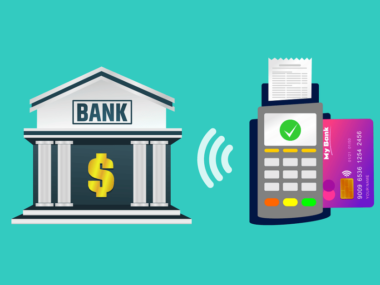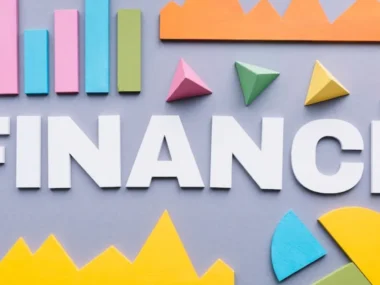Table of Contents
The Crypto Lead-in to Coin Adoption & the Future of Digital Finance

Most cryptocurrencies are innovative and disruptive to the fintech industry since they revolutionize the method of payments and delivery of services. More precisely, that is what this blog post will discuss – how cryptocurrencies and other fintech novelties are preparing the ground for the increasing popularity of coins and what contribution to the development of digital money they make.
Understand the Role and Importance of Fintech in the Modern World
Fintech is commonly known as financial technology which mean technology used by the companies in the financial market to enhance the offering of services. Over the last decade, fintech has revolutionized how consumers access and manage their finances, driven by innovations such as:Over the last decade, fintech has revolutionized how consumers access and manage their finances, driven by innovations such as:
- Mobile Banking: Making clients to have an easier time to access their accounts and the services being offered at any one given time of the day.
- Peer-to-Peer Payment Platforms: To help users transfer money within short intervals and between two parties with ease.
- Robo-Advisors: People are used in providing advice to clients regarding their investment but this is likely to be replaced by algorithms.
One of the biggest changes within this field can be observed in the appearance of cryptocurrencies. These digital currencies that use cryptography for their security provide an analog to traditional currencies removing the banking institution.
The Meaning of Crypto and Its Position in Fintech

Since the inception of Bitcoin in 2009, the entire market has evolved to thousands of cryptocurrencies, creating separate coins to resolve certain challenges in the financial market. In simplest terms, cryptocurrencies build on blockchain—a distributed digital ledger that stores all data regarding transactions within a network. This technology guarantees the credibility and safety of the transactions and saves the middlemen’s roles while being more useful in areas with a low percentage of financially included citizens.
Cryptocurrencies play an important function in fintech since they offer methods of participating in economic activities by individuals without having to deal with the banking systems. This process is known as the crypto lead to the coin adoption that shows the increasing trend of using cryptos in individuals’ transactions and in institutions.
The Crypto Lead-in to Coin: A Shift in the Role of Finance

Analyzing the phrase ‘crypto lead-in to coin’ it is evident that the use of cryptocurrencies is moving more into personal and institutional finance.
Several key factors are driving this trend:
- Growing Trust in Blockchain Technology: With advancement in the technology the more the financial institutions are adopting this technology to improve on the security and the authenticity in the transaction processes. This growing trust is vital when it comes to the integration of the cryptocurrencies in the conventional financial sector.
- Institutional and Corporate Adoption: Big companies such as PayPal, Tesla, Visa have started incorporating cryptocurrencies into their processes; consumers have got more chances to use digital currencies in their day-to-day lives. This institutional interest is to legitimise cryptocurrencies and encourage more people to use it.
- Simplified Access to Cryptocurrencies: Fintech companies also streamlining ways through which the users can purchase, store and transact using cryptocurrencies. Fortunately, some of the exchanges such as Coinbase and Binance have made the process easier for the newbie investor who has little or no knowledge in computer programming.
- Decentralized Finance (DeFi): It helps to continue the work through digital platforms which allow buying and selling financial assets directly without using financial intermediaries and stir interest to crypt currencies. Lending and borrowing, trading are possible in DeFi platforms and thus position cryptocurrencies as crucial to this new financial system.
The role of Fintech in the growth of coins

Fintech’s play an important role in the ability to achieve the adoption of cryptocurrencies throughout the world.
Here are several ways fintech is contributing to this trend:
- Mobile Wallets and Crypto Exchanges: Some platforms include the Kraken Platform, MetaMask, etc which have eased with management of the Cryptocurrencies. These interfaces make cryptos easily workable and anyone who owns a smartphone can do the crypto trading.
- Stablecoins for Everyday Transactions: This is due to the fact that the prices of these cryptocurrencies have fluctuated in the past, which discourage their utilization in daily business. Hence, stablecoins, which are pegged with fiat currencies, are ideal because they reproduce characteristics of cryptocurrencies without the constant fluctuations in prices. For instance, Tether (USDT) and USD Coin (USDC) are examples of stablecoins which help make exchanges without volatility inherent to regular cryptocurrencies.
- Integration of Crypto into Payment Systems: Fintech companies are adding more cryptocurrencies payment processes in their hat matrices. Platforms such as PayPal and Square provide capacities for buying, selling and holding digital currencies and integrate them into the consumption processes.
- Institutional Investment Opportunities: Custody services being present mean that hedge funds, pension funds that are institutional investors can safely invest in cryptocurrencies. These legitimization of digital assets is resulting in increased awareness and usage by the general public.
The Future of Digital Finance: Who Decides: Crypto and Fintech Worlds

The convergence of fintech and cryptocurrency is still in its early stages, but several trends are likely to shape the future of digital finance:
- Central Bank Digital Currencies (CBDCs): Most nations are considering the possibility of Central Bank Digital Currencies, which will combine the features of cryptocurrencies with the backing of the country’s central bank. This crypto lead-in to coin adoption is likely to increase the use of digital currencies in daily economic activities. For more on CBDCs, check out this detailed McKinsey report.
- Integration of Crypto into Traditional Finance: The trend indicates that as more financial institutions provide a broader range of crypto-related services, the established connection between crypto lead-in to coin adoption and traditional finance will become even more intricate. In the future, financial companies will need to offer seamless integration solutions for the use of cryptocurrencies alongside fiat money.
- Increased Regulation and Security: With the growing adoption of crypto lead-in to coin adoption, there’s an increasing demand for stronger policies to ensure transaction security. New regulations will be essential for fintech companies to receive proper support from regulatory authorities. This will help build unique systems that foster trust in cryptocurrencies, further pushing forward the crypto lead-in to coin adoption.
Conclusion
The Crypto Lead-in to Coin Adoption innovations in Fintech have contributed greatly to paving the way for cryptocurrencies by developing an effective foundation for them. In future, the use of cryptocurrencies in performing the normal financial transacting activities is predicted to be much easier and common, thanks to the crypto lead-in to coin adoption. Another important thing to mention here is that the presence of fintech and cryptocurrency are not future trends; the crypto lead-in to coin adoption is a continuous process that is happening now and altering the financial industry as we can see.
For more elaborate figures and additional information about the current trends regarding fintech products, try to read the articles of the Chainalysis Global Crypto Adoption Index and Zonda Crypto. Some of these resources offer great information on new inventions and the effect they have on the crypto lead-in to coin adoption within the financial industry.





1 comment